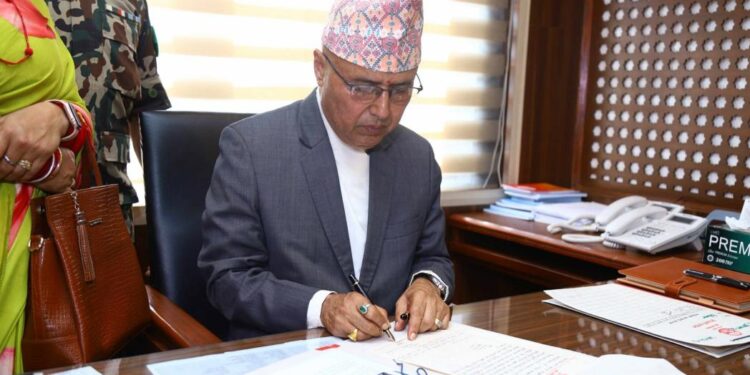Newly appointed Finance Minister Rameshore Khanal has pledged to enforce austerity measures to rein in government spending, a goal previous administrations repeatedly announced but failed to achieve.
On his first day in office Monday, Khanal said his immediate priority will be managing funds for the March elections while reducing unproductive expenses. He highlighted corruption control, reconstruction, and collaboration with the private sector as key focus areas.
Rejecting the supplementary budget, Khanal announced that funds will not be allocated to projects outside the government’s project bank. He also ruled out financing small-scale projects often inserted into the budget under political pressure. The National Planning Commission requires projects below Rs 30 million to be excluded from the project bank, though past governments have frequently bypassed the rule.
To streamline spending, Khanal formed a three-member taskforce led by the chief of the Budget Division to prioritize projects for effective budget implementation. “Now, we are burdened to hold elections and address youths’ demands. So, unnecessary budgets will be slashed,” he stated.
He estimated that cutting such projects could save the government Rs 100 billion. In another cost-saving measure, he announced a freeze on new vehicle purchases for government offices.
Nepal’s failure to curb wasteful spending has contributed to rising public debt, which reached Rs 2.66 trillion by the end of FY 2024/25—an increase of Rs 231.54 billion in just one year.
Khanal added that the government will also consider recommendations from the High-Level Economic Reform Commission, which he chaired. The commission, formed in October 2024, submitted its report in April 2025 outlining measures to strengthen Nepal’s economy.











